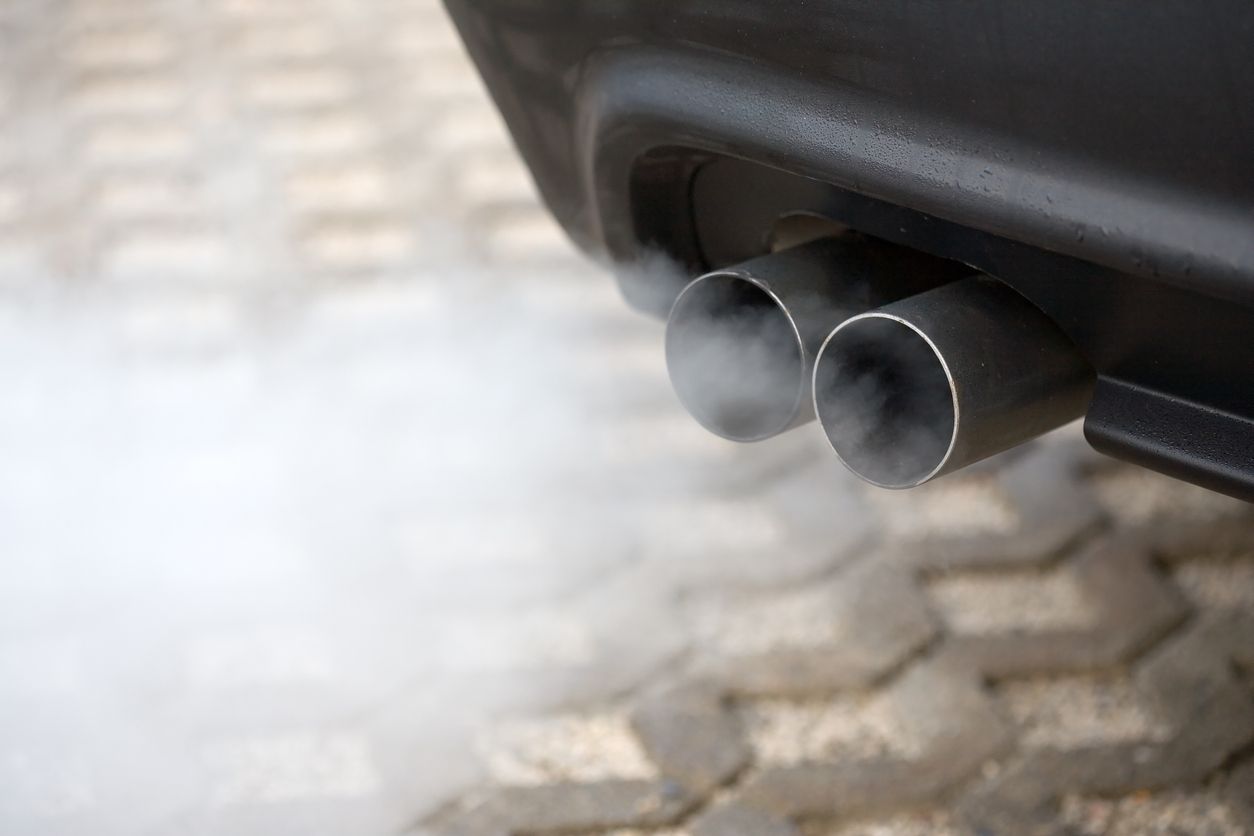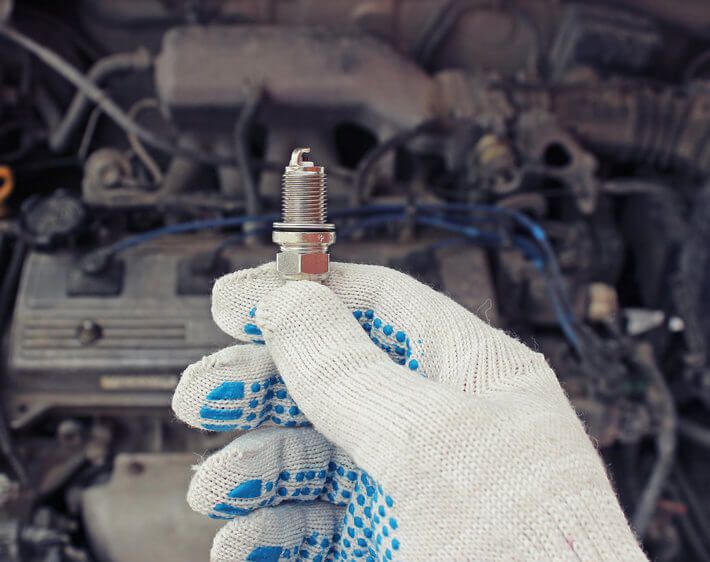Seeing unusual colors in your car’s exhaust smoke can be alarming, but it’s also a helpful clue about what’s happening under the hood. Whether it’s gray or blue smoke coming from the exhaust pipe, or something else entirely, every color has a story. Let’s break down what your exhaust smoke colors mean and what you can do about them.
Note: If you have a diesel engine, please consult with a technician. The following information is geared toward gasoline engines and may not be appropriate for your vehicle.
| Car Exhaust Color Coding Chart | |
|---|---|
| Smoke Color | Possible Cause |
| Thin or light white exhaust smoke | Water vapor, especially if smoke occurs briefly upon start-up or on cold days |
| Blue or dark gray exhaust smoke | The engine may be burning oil |
| Black exhaust smoke | The engine may be burning too much fuel. May be caused by a clogged air filter or a malfunctioning fuel injection system |
| Thick or milky white exhaust smoke | Leaking head gasket, cracked cylinder head |
Car Exhaust Smoke Colors: What They May Mean
1. Light or Thin White Exhaust Smoke
Light or thin white exhaust smoke is typically water vapor. You’ll notice it the first time you start your car, especially if it's a cold day. This happens because condensation naturally collects in the engine and exhaust system. Light or thin white exhaust smoke when starting a cold engine is common in most vehicles.
However, if thick, white smoke lingers, it could indicate something more serious, like a coolant leak. This happens when coolant seeps into the combustion chamber, usually due to a blown head gasket, a cracked engine block, or a faulty cylinder head. If you notice a sweet smell or overheating, it’s time to have your car inspected.
2. Blue Smoke Coming From the Exhaust
Blue or gray smoke coming from exhaust pipes typically signals burning oil. This can happen when engine oil leaks into the combustion chamber due to leaking valve seals, damaged piston rings, worn cylinder walls, or a malfunctioning turbocharger. Either way, it's time to have a qualified technician check things out. Blue smoke from exhaust is more common in older vehicles or engines with high mileage.
Pro-Tip: Blue smoke during acceleration means your vehicle’s piston rings may be damaged. During deceleration, however, blue smoke could mean the cylinder heads’ valve guides are damaged. Help your technician diagnose the potential problem by noting when the blue smoke occurs, then schedule an appointment at your nearest Firestone Complete Auto Care for oil leak repair services!
3. Black Smoke Coming From the Exhaust
Black exhaust smoke often indicates your car is running too rich, meaning it’s burning more fuel than necessary. This could be caused by a clogged air filter in older cars, a malfunctioning fuel injection system, or a variety of other issues.
A clogged air filter won't hurt your gas mileage thanks to today’s automotive technology, says Consumer Reports, but you’ll pay for it with poor performance. Have your vehicle checked out by a technician to see why your vehicle is burning more fuel than usual.
4. Persistent, Milky White/Gray Smoke From the Exhaust
What causes white smoke to come out of the exhaust? A steady stream of thick white/gray exhaust smoke coming from your tailpipe could mean there's a leaking head gasket. “In this case,” automotive writer Paul Brand explains, “the coolant would end up being heated in the combustion chambers and blown out the exhaust as the engine starts.” A coolant leak in the summer could easily lead to an overheated engine, and an overheated engine could leave you stranded on the side of the road.
Heavy white/gray exhaust smoke pouring from your tailpipe could also mean a cracked block or cylinder head—both are very serious problems that should be addressed quickly. Waiting too long could cost you in repairs.
Smoking Exhaust? Visit Firestone Complete Auto Care!
Whether the smoke coming from your exhaust pipe is white, black, blue, or gray, getting to the root of the problem is critical. If your exhaust is sending up smoke signals, play it safe and visit the professionals. Your car may be trying to inform you of an oil leak, a broken engine part, a clogged filter, or something else. Find your nearest Firestone Complete Auto Care and bring your vehicle in for a courtesy vehicle check today, and if needed, an important repair!



